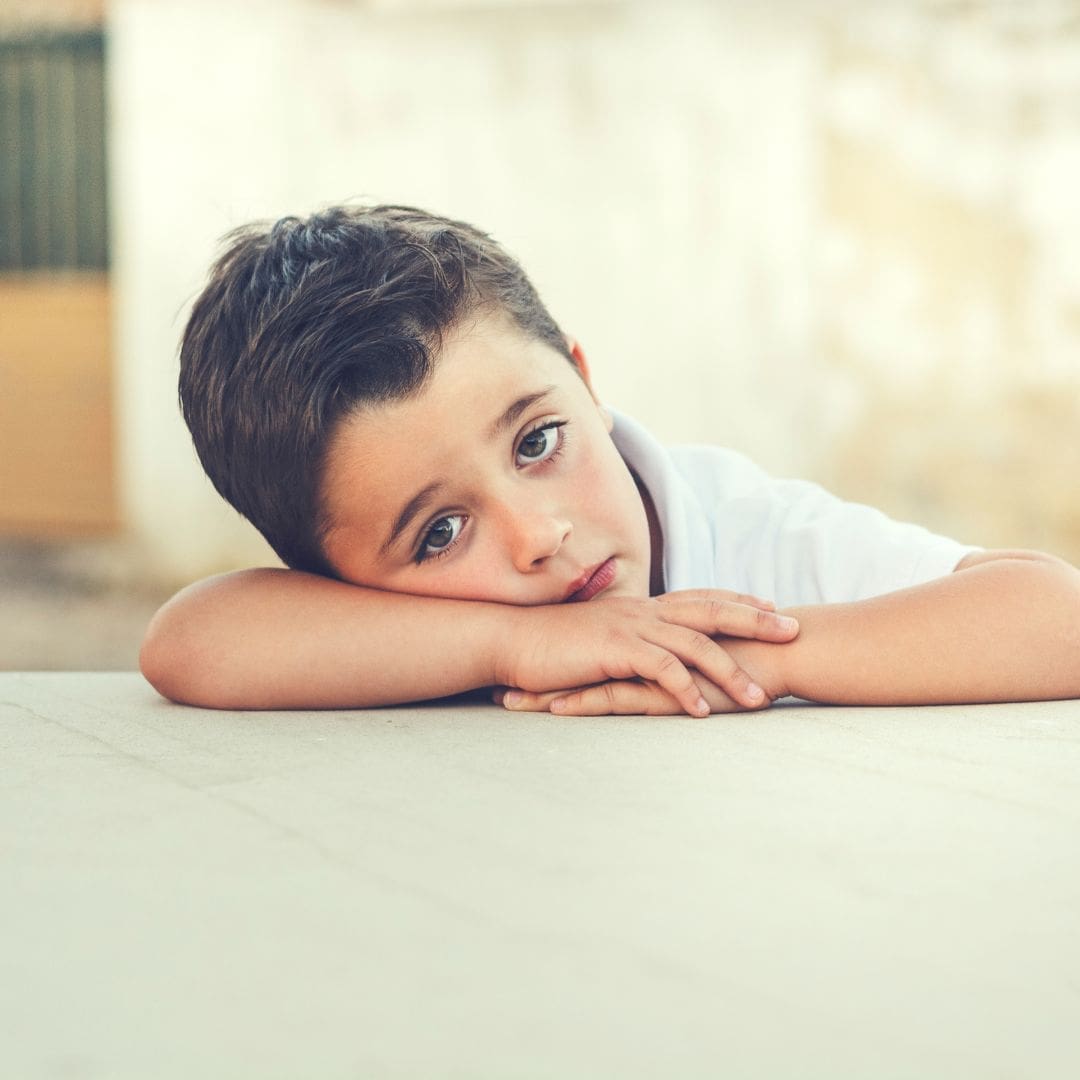Toxic Parenting: Parents Who Blame Their Children

Anas ibn Malik reported: I served the Prophet (pbuh) for ten years. He never blamed me if he ordered me to do something and I missed it or lost it. If someone in the household gave me blame, the Prophet (pbuh) would say, “Leave him alone, for if it has been decreed, it is as it should be.”
[Musnad Ahmad 13418 – Sahih Al-Arna’ut]
When you lose your temper, do you lash out at your child, “You make me so angry!” or “Look what you made me do,” or “You’ve ruined my mood!”
Children aren’t responsible for your emotions – you are.
Yes, they will push your buttons, and make mistakes, and messes, and noise – that’s what kids do.
They’re learning. And our job is not to blame and shame on them when they mess up. It’s to provide a safe place for them to learn from their mistakes.
And they’re watching us.
ALL. THE. TIME.
So how we respond MATTERS. There is ALWAYS a choice in how we react to our children when things go wrong.
Choosing to take the high road – the path that Rasul’Allah (pbuh) exemplified – is not always easy. But it is the path that will leave you with the least regrets.
Do your best to teach your children, lead by example, be patient when they fall short, and trust in Allah swt.
Why do parents use blame with their children?
Take a moment and think about how you react when your child does something wrong – what is your knee jerk reaction?
Do you focus your energies on trying to pinpoint who committed the crime? Asking who, what, where, when, why?
Many parents will justify using blame as a parenting style. They think that rewards and punishment are the fundamental basis for a proper education.
Regularly blaming kids leads to their emotional distress. It comes from a symbolic and social penalty – it feels important to some parents to assign who’s at fault.
What blame doesn’t do, however, is teach kids responsibility, autonomy, or how to make good decisions.
Using blame to raise children doesn’t educate them, it just conditions them.
Using blame increases the control over a child for authoritarian parents (an extremely strict parenting style where kids are expected to follow the rules with no questions asked), making their job easier.
But children are left feeling fearful. They may follow directions more easily because they’re weaker and conditioned to not speak out or question.
Is it worth that?
Every child deserves to be treated with dignity and respect. They also deserve the opportunity to develop the life skills they need in an atmosphere of kindness and firmness instead of an atmosphere of blame, shame, and pain.
What happens when you regularly blame your child?
Regularly blaming your child can destroy their self-esteem and make it easier for others to manipulate them.
Culturally, many people still believe that raising a child well means that they follow your rules and obey you without question.
Yes, we of course, want our children to cooperate with us – but we also have an obligation to teach our children how to think.
When you regularly blame your child, it makes them believe that they have to behave as the authority figures tell them to. It also makes them believe that they shouldn’t question the rules and ignore any doubts or concerns they may have.
What do parents achieve when they regularly blame their children?
It gradually erodes the child’s ability to think for themselves – their critical thinking skills disappear.
The human conscience is a natural sense of justice and righteousness, an inner voice that people should listen to when making judgments. It’s what we rely on when making decisions.
Kids who are raised being blamed on a regular basis have their conscience stunted. It’s harder for them to think critically, making them easier to manipulate, bring down and be used by other people. Such children grow to be adults who rely on the approval of others for their self-worth.
How you can turn things around
To remedy this, nurture your child’s feelings of self-worth and encourage them to think critically by:
🌰 Being a good role model – take responsibility for yourself when you make a mistake instead of blaming your child. You own your emotions, and must learn to control yourself and find healthy ways to self-soothe. Dedicate your focus to just this step if you feel you have blamed your children for everything that goes wrong.
This is hard to do. It takes courage to admit when you’re wrong – even to yourself. And we worry about how our kids will view us if we admit that we made a mistake. Will they respect or listen to us ever again?
The truth is that our kids are a reflection of us. If we accept responsibility, admit fault, and make a concerted effort to regulate our emotions in a healthy way, our kids are much more likely to do the same. They’re watching everything we do, whether they know it or not.
Sometimes, just focusing on yourself first, can have a positive ripple effect on your family.
🌰 Be respectful – The best way to teach your child anything is to model it yourself first. This is especially true for teaching respect. Many cultures believe that if you talk to your child with respect, you are being a doormat. That is absolutely not true. Your children are in all honesty, going to increase in their love for you, are much more likely to listen to what you have to say to them, and will almost certainly return that respect to you 10-fold.
🌰 Teach your children to problem-solve. When you’re facing pushback from your child, invite them to help you resolve it, rather than pointing fingers. Be a problem-solver, not a blame-seeker.
🌰 Encourage your kids to ask questions and be as honest as you can – in an age-appropriate way. This is the best way to learn. When your kids feel that you take their questions and curiosity seriously, and give them your attention, you’re ensuring that they will come to you throughout their lives, knowing that you are a safe place with honest and real answers and advice for them.
🌰 Practice making choices – guide them through different scenarios and create a safe and supportive space for them to learn how to make decisions with confidence.
To learn more effective strategies that you can incorporate with your children that are neither harsh nor punitive, but loving and firm, take our self-paced course, “Bring Positive Discipline into your home.”



Thank you for sharing this insightful reflection on parenting and the importance of avoiding blame in our interactions with our children. Your words echo the wisdom of the Prophet Muhammad (pbuh) and emphasize the significance of fostering a positive and nurturing environment for our children’s growth.